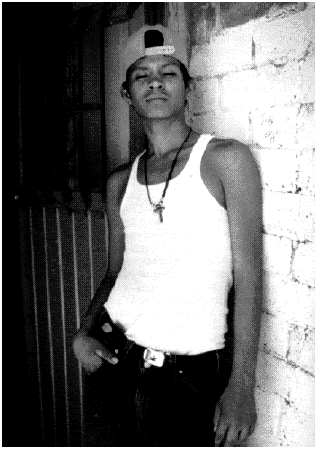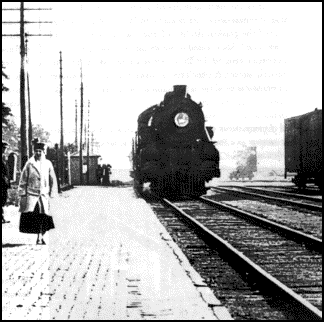In Dust
Tim Z. Hernandez
(Texas Tech University Press)

They also go for abortions, get raided by "La Migra," indulge in sex for drugs, and finally Tlaloc and his friends end up at a seedy party in an old smelly motel with two strippers (who sweat, collect money, and make with the "back-and-forth.")
The lives of Mexican Americans growing up and living in the Central Valley of California are thus not only pictured as nasty, short, and brutish ... but without grace. Or with any redeeming merits.
There are moments. There's Tlaloc's first drunk, getting stoned with his buddies. There's his first poetry reading in Los Angeles (where he gets spooked, has to run the vicious streets, and --- before an audience of six --- gets to read but one poem).
The high point of Breathing is, gasp, lying between the rails there near Catela as a loaded freight train begins its pass right over him:
- When the tracks rumble and spit, you'll actually see the rails leaping into the air, and slapping down into the earth. Dust will fly into your eyes ... Just the grind of steel on steel, flashes of sparks beneath and above. One finds its way to your head and burns into the scalp. The smell of singed hair nearly rips you from your position but you hold.

So there is some high art in Breathing, but there also seems to be a touch of the misogynist. Hernandez tells of Tlaloc standing in a line in a grocery store, where "there is always some braless grandmother with gargantuan titties and a mole on her neck, bad-mouthing her young grandson, whose eyes hint of escape." His girlfriend Talina --- the one of the abortion --- is working at Pato's Carniceria, cleaning carcasses "in the back room."
- She buries her two thin fingers into the eye sockets and shovels that gelatinous meat out, careful not to pop one because the old Portuguese men pay good money for eyeball.
Arturín meets with his old girlfriend Aurelia, who smells "like a bag of decaying trout out in the open."
Back when Tlaloc was younger, he found himself caring for his grandmother after she had gone through chemotherapy. He was cleaning her off with a rag and "I leaned closer ... This is when I saw it. I poked it with my finger and it began writhing in place. A maggot."
Thus Hernandez has the ability to make your skin crawl, dredge up the horrors ... but has not yet learned to touch the dark with a hint of light, if not joy or love. He starts off the volume with a quote from Thich Nhat Hanh: "A speck of dust contains everything in the universe." But Hernandez doesn't follow through, to acknowledge the central tenet of Buddhism. That life can be, as they say, a royal pain; but there is a reason for this pain. And there is, also, they say, a way out.
At this point, all he offers is a dark tunnel, with an express train coming straight at us ... raising the dust, throwing sparks, creating terror.